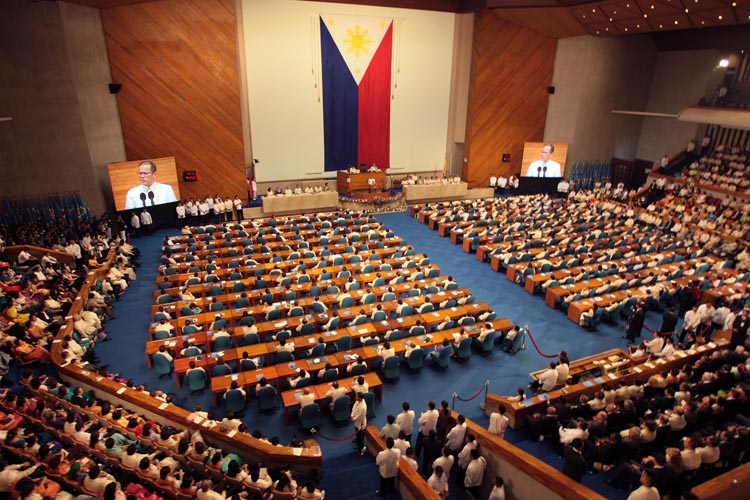
MANILA—The House of Representatives has approved on second reading a bill seeking to institutionalize and strengthen Public-Private Partnership (PPP) in infrastructure and development projects, and appropriating funds therefore.
House Bill 6331, or the proposed “Public-Partnership Act” was endorsed for plenary approval by the committees on appropriations chaired by Rep. Isidro T. Ungab (3rd District, Davao City), public works and highways chaired by Rep. Ronald M. Cosalan (Lone District, Benguet), and ways and means chaired by Rep. Romero S. Quimbo (2nd District, Marikina City).
The bill substituted House Bill 3951 authored by Speaker Feliciano Belmonte, Jr., Majority Leader and Mandaluyong City Lone District Rep. Neptali M. Gonzales II, Cosalan, and Quimbo; HB 2906 by Rep. Jesus N. Sacdalan (1st District, North Cotabato); HB 2022 by Rep. Romeo M. Acop (Second District, Antipolo City); and HB 4895 by Cosalan.
Belmonte said the bill seeks to amend Republic Act 7718, otherwise known as “An Act Authorizing the Financing, Construction, Operation and Maintenance of Infrastructure Projects By the Private Sector, and For Other Purposes,” to further strengthen the basic legal framework in undertaking PPP projects.
“The approval of the bill is a welcome development in light of our efforts in Congress to come up with a new law that will build from the experiences of the government in areas involving build-operate-transfer (BOT) projects. Our proposed reforms intend to sustain the gains of the Aquino administration’s PPP Program as it continues to move forward with its infrastructure projects,” said Belmonte.
The Speaker said the country holds the distinction as one of the first developing countries to have created a legal and regulatory framework for BOT projects. In 1990, he said the Philippine Congress enacted RA 6957, the first BOT law in Asia, which was further amended by RA 7718 to provide for an increased number of variants of BOT contractual arrangements.
“The BOT law has significantly increased private investment in infrastructure in the country by promoting private sector participation. Two decades after the passage of RA 7718, however, there is a need to further amend the law in order to keep the policy environment attuned to the present business landscape,” said Belmonte.
House Bill 6331 provides it is the declared policy of the State to recognize the indispensable role of the private sector as the main engine for national growth and development, create an enabling environment for Public-Private Partnerships (PPP), and provide the most appropriate incentives to mobilize private resources for the purpose of financing, design, construction, operation and maintenance of infrastructure projects and services normally financed and undertaken by the government. Such incentives, aside from financial incentives as provided by law, shall include provision of liberalized government regulations and procedures in support of the private proponent.
Furthermore, the State recognizes the long-term nature of private investment in infrastructure projects and mitigation of risks by ensuring that the validity and enforceability of contracts are respected through the due process of law.
Likewise, the State protects the public interest by ensuring fair and reasonable pricing and timely delivery of quality infrastructure, good and services through equitable risk allocation inherent in projects implemented under the Act.
Lastly, the State affirms open, transparent and competitive selection as the central tenet of government procurement in securing private investment in public infrastructure projects. It shall secure private investments through transparent and competitive selection process and bidding procedures.
The bill refers to Public-Private Partnership as a contractual arrangement between the implementing agency and the project proponent for the financing, design, construction, operation, and maintenance, or any combination thereof, of an infrastructure facility, in which the project proponent bears significant risk, management responsibility, or both.
It provides that PPP Projects may be undertaken through any of the following contractual arrangements: build-and-transfer; build-lease-and-transfer; build-own-and-operate; build-operate-and-transfer; build-transfer-and-operate; contract-add-and-operate; develop-operate-and-transfer; joint venture; operations and maintenance contract; rehabilitate-operate-and-transfer; and supply-and-operate. Other variations may be allowed upon prior approval by the Investment Coordinating Committee (ICC).
Priority projects that will be implemented under the Act shall be consistent with the Philippine Development Plan or its equivalent at the local level. The implementing agencies shall submit their list of PPP projects or any update thereto to the PPP Center for Information. Each proposed PPP project to be implemented shall be subject to the approval of the Approving Body.
The PPP center shall ensure that Congress and the general public are provided with adequate, timely and relevant information pertaining to these priority projects. The release of proprietary information, which shall be defined in the IRR of the Act, is not contrary to existing laws.
The bill also contains provisions pertaining to: unsolicited proposals; public bidding of projects; private legal assistance; contract termination; issuance of administrative franchise, license or permit; expansion or extension of an existing infrastructure facility; prohibition on the issuance of Temporary Restraining Order (TRO) or injunction; investment incentives; projects of national significance; exemption from payment of transfer taxes; institutionalization of PPP Center; PPP Governing Board; PPP Center executive director; mandatory inclusion of alternative dispute resolution mechanisms in PPP contracts; penal provision; risk sharing and funding of contingent liabilities; miscellaneous provisions; Joint Congressional Oversight Committee; transitory provision and implementing rules and regulations (IRR).